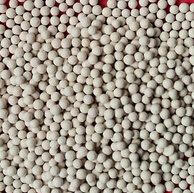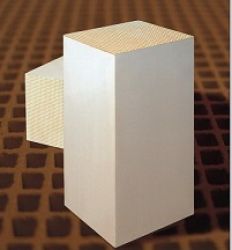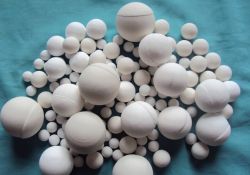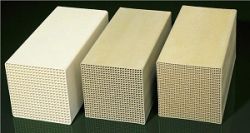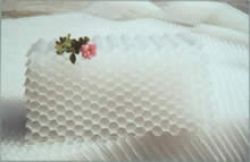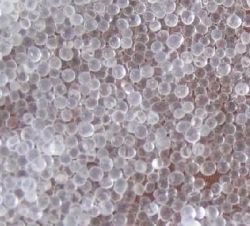Offer Yuanying Insulating Glass Desiccant
| Price : | $700.00 |
| Quantity : | 1000 (metric ton) |
| Minimum Order : | 10 |
| Product Status : | New |
| Sample Available : | yes |
| Shipment Terms : | fob,cfr,cif,Negotiable |
| Payment Mode : |
T/T,L/C,cash,WesternUnion |
| Categories : | Chemicals, Chemical Auxiliary & Catalyst, Desiccant & Sorbent |
| Posted By : | Yuanying Industry Limited |
Description
Insulating Glass Desiccant
Yuanying insulating glass desiccant is made of zeolite and attapulgite clay through special technology, and is specially developed for insulating glass, considering all kinds of situation among the using process of insulating glass. Insulating glass desiccant has the following function:
1) Adsorbing the moisture in glass interlayer, the moisture comes from production period;
2) Adsorbing the moisture which enters insulating glass among its life period, to keep low dew point in insulating glass;
3) Adsorbing volatile organic solutes in glass interlayer, organic solutes come from production period and use period.
Yuanying Insulating Glass Desiccant has low moisture content, good strength, non-corrosive, strength depth adsorption and the incomparable advantages:
1) Its moisture content is low. Yuanying moisture in packing is controlled within 1%, far below the average level 1.5% of this industry.
2) Depth absorption ability is strong, can fully absorb moisture in insulating glass, ensuring low dew point of insulating glass.
RH=10%, 25℃, static water adsorption capacity: 3A molecular sieve is 13%~16%, and attapulgite clay desiccant is 10%~11%. But 10% static water adsorption capacity can ensure dew point of insulating glass below -40℃. Yuanying insulating glass desiccant base on attapulgite clay desiccant and improve it, its properties are superior and can ensure dew point below -60℃;
3) Insulating glass desiccant almost doesn’t adsorb O2, N2 and inert gases, so it can ensure that insulating glass doesn’t occur introflexion and excurvature, prolong the service life of insulating glass.
Air main component N2 molecular diameter is 3.6A, O2 is 3.5A, H2O is 2.6A, Ar is 3.4A, SF6 is 4.56A. 3A molecular diameter is 3A, can only adsorb water among above substance. Attapulgite aperture is 0.37x0.63nm, although it is bigger than N2, but attapulgite has the ability of selective adsorption, its surface has a large number of electronegativity OH-, showing polarity. It is easy to adsorb polar molecule H2O and is very difficult to adsorb nonpolar molecules such as N2, O2, inert gases. Attapulgite adsorption capacity is as the following: water > alcohol > aldehyde > ketone > alkene > neutral fat > arene > alkanes > cycloalkanes. Tested by Shanghai Research Institute of Chemical Industry, nitrogen adsorption capacity of insulating glass desiccant is less than 0.53 mg/g, and nitrogen adsorption capacity of 3A molecular sieve is less than 2 mg/g. If 4A molecular sieve used as insulating glass desiccant, it adsorbs H2O at the same time will adsorb N2, O2, inert gases, this will cause glass interlayer negative pressure and occur introflexion; If the temperature increases, 4A molecular sieves will desorb and release gases, cause glass interlayer positive pressure and excurvature. Thus continue alternating roles, sealant will lose effectiveness and insulating glass will become invalid.
4) Good strength, no cracking; less dust, not falling powder.
Strength, dust and wear rate of desiccant are related to each other. The higher strength, the lower dust and wear rate. Molecular sieve powder without caking property, must add adhesive to make particles, after sintering strength is low, easy to produce dust, also attrition rate is high; Attapulgite has good caking property, after sintering it has high strength, little dust, low attrition rate.
5) Non-corrosive effect to aluminum alloy frame and sealing strip.
The physical properties of lime, calcium chloride and phosphorus pentoxide will change after absorbing water, and the resultant is generally corrosive acid, alkali, salt crystals or solution. Silica gel, activated alumina, insulating glass desiccant and molecular sieve have non-corrosion after adsorbing water.
6) Insulating glass desiccant can adsorb volatile organic solutes in glass interlayer.
Insulating glass sealant, machine oil and paint contain a small amount of volatile organic solutes, and its life period organic solutes will also enter the air layer. Common solutes are toluene and butanone, if these organic solutes don’t be absorbed, they can produce organic fog which will influence the beauty of the glass and the line of sight. 3A molecular sieve can’t adsorb these organic solutes, but 13X molecular sieve, silica gel can adsorb them, so usually let 3A, 13X or 3A, silica gel together as the desiccant. Later people found attapulgite can adsorb organic solutes, and attapulgite is the adhesive to make molecular sieves, so add the right amount of attapulgite clay in 3A molecular sieve can solve the problem of organic fog. Attapulgite fibres partly will build into a small amount of large channels, plus its strong selective adsorption ability of organic solutes, therefore can absorb a small amount of volatile organic solvents in the sealant. Over the past few years of practices has proved that using Yuanying insulating glass desiccant to produce insulating glass there is no phenomenon of organic fog.
7) The initial static water adsorption speed is slow.
The initial static water adsorption speed of 3A molecular sieve is quick, but quickly tend to balance. After modification of attapulgite clay, cation exchange, its specific surface area and adsorption ability increase. The attapulgite crystals are clubbed, acicular and fibrous, length about 0.5-1.0μm. The longer channel is, the slower adsorption speed is. After testing, during the first few hours, insulating glass desiccant average static water adsorption speed is 2/5 to the 3A molecular sieve adsorption speed. This kind of circumstance is good for insulating glass, the initial adsorption quantity is small, the residual adsorption quantity is big, can prolong the service life of insulating glass.
8) Large temperature rise, releasing small amount of gas.
Desiccant adsorbing water will give out heat, heat release lead to temperature rise, the smaller pore is, the more heat releases, the higher temperature rises. The temperature rise of 3A molecular sieve and insulating glass desiccant are more than 30℃. The difference is that the initial temperature rise of 3A molecular sieve is quickly, and then reduced to balance. The warming trend of insulating glass desiccant has been to balance, and this makes the attapulgite more advantages. In general, if the volume of releasing gas is qualified, the higher temperature rises, the better desiccant is.
 |
|
